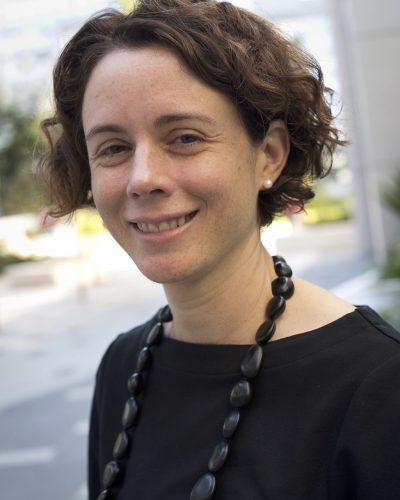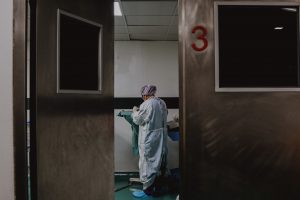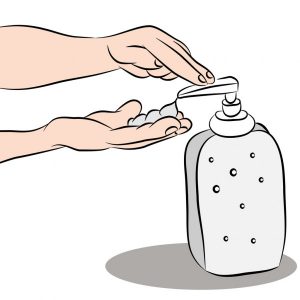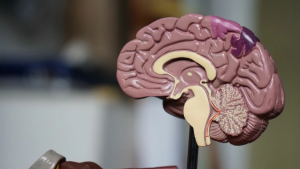Putting yourself in a junior doctors’ shoes: new ways to promote pharmacist-doctor collaborations

Effective interprofessional collaborations, such as those between doctors and pharmacists, improves patient outcomes (Reeves, 2016). Yet it can be challenging, as junior pharmacists, to know how to best approach these collaborations especially when it involves telling a doctor about a prescribing error. As a pharmacist and health professions education researcher, along with my research colleagues, we wanted to investigate the interactions between pharmacists, junior doctors and consultants in hospital settings in more detail.
What we did?
We interviewed pharmacists, junior doctors and consultants who worked in a large Australian teaching hospital. We focused on determining how to enrich co-working between junior doctors, consultants and pharmacists (Noble & Billett, 2017) and how pharmacists could contribute to sustaining and transforming prescribing practices (Noble & Billett, 2016). Based on our research, we have identified several insights and strategies which may help improve your interactions and working with junior doctors.
Put yourself in the junior doctors’ shoes. We found that when junior doctors first start practicing, they find it challenging to prescribe. They have frequently had lots of teaching about prescribing theory but can lack practical prescribing experience in clinical settings. Moreover, they are often working with a medical team who they are working with for the first time and learning several new skills (e.g. making referrals, requesting x-rays, examining patients), of which, prescribing is only one piece in their learning puzzle.
Pharmacist Strategies: When working with junior doctors, put yourself in their shoes and imagine how challenging it can be for them to learn to prescribe effectively. They may not have practical experience in writing up a prescription chart, selecting a medicine for patients with multiple co-morbidities or their boss i.e. consultant or registrars might have told them what to prescribe. So, offer to help them with their prescribing. Yet, be mindful that they will be getting prescribing advice from a range of people e.g. consultants, registrars, nursing staff, so recognize this challenge and present yourself as some who can help i.e. your available for prescribing advice, however, simple it might seem.
Help junior doctors to understand your role. We also found that junior doctors, when they were medical students and/or first start working in a hospital, may have had limited opportunities to work with and may not fully understand the pharmacist role. This means they may not grasp, for example, why you are asking them to amend a prescription e.g. to ensure it legal or why you are requesting a different antibiotic because it is not on the formulary.
Pharmacist Strategies: When working with junior doctors for the first time, take the time to establish rapport by introducing yourself, describing your role and how you can help them with their prescribing. You might want to orientate them to the local prescribing practices and share with them the prescribing guidelines used in your work setting, offer to guide them when they write some of their first prescriptions/medication charts or provide examples of exemplar prescriptions, so they understand what pharmacists are looking for.
Re-imagine your role as a prescribing learning facilitator. Because the junior doctors found prescribing challenging, they noted that they valued learning from their medical peers and pharmacist. Yet, most of the junior doctors in our research noted that the main reason that pharmacists contacted them was to tell them that they’d made a prescribing error. This meant that they tended to react to pharmacists from a stance of ‘what have I done’ now which is not ideal for promoting effective learning.
Pharmacist Strategies: Re-imagine your role as a prescribing learning facilitator rather than a prescribing error finder. In other words, switch from telling junior doctors about theirs errors to facilitating opportunities to improve. One way to do this would be to develop your skills in effective feedback practices. For example, building rapport (described above) provides the platform for a trusting working relationship (Telio, Ajjawi, & Regehr, 2015) and then before launching in with watch they’ve done wrong, give them an opportunity to self-evaluate, then share and collaboratively discuss your perspective with the overall goal being to help them generate strategies to improve their prescribing (e.g. read certain guidelines) (Boud & Molloy, 2013).
Summary
Whilst our research focused on junior doctors and hospital pharmacists, these lessons may be helpful for pharmacists in a range of settings. It, also, offers new perspectives for thinking about your role and how you can contribute to effective interprofessional collaborations between pharmacists and doctors. So, in summary, put yourself in someone else’s shoes, help doctors understand where you are coming from, and use each interaction as a learning opportunity where the intention to promote learning rather than error focused. The overall goal is to contribute to improve patient outcomes.
References
- Boud, D., & Molloy, E. (2013). Feedback in Higher and Professional Education: Understanding it and doing it well. New York: Routledge.
- Noble, C., & Billett, S. (2016). Sustaining and transforming the practice of communities: Developing professionals working practice. In S. Billett, D. Dymock, & S. Choy (Eds.), Supporting learning across working life: Models, processes and practices. (pp. 147-167). Dordrecht, The Netherlands: Springer.
- Noble, C., & Billett, S. (2017). Learning to prescribe through co-working: junior doctors, pharmacists and consultants. Medical Education, 51(4), 442-451. doi:10.1111/medu.13227
- Reeves, S. (2016). Why we need interprofessional education to improve the delivery of safe and effective care. Interface: Communication, Health, Education, 20(56), 185-196. doi:10.1590/1807-57622014.0092
- Telio, S., Ajjawi, R., & Regehr, G. (2015). The “Educational Alliance” as a Framework for Reconceptualizing Feedback in Medical Education. Academic Medicine, 90(5), 609-614.
The opinions expressed in the article are the writer’s own and do not reflect the view of MPS YPC.

Dr. Christy Noble is a Principal Research Fellow (Allied Health) and Principal Medical Education Officer at Gold Coast Health, Australia. She also holds Academic Titles as Senior Lecturer in School of Pharmacy, The University of Queensland and School of Medicine Griffith University. She is a registered pharmacist who has more than 14 years’ experience as a hospital pharmacist. Her research interests include interprofessional and workplace learning, professional identity formation, feedback practices and research capacity building in healthcare settings.













